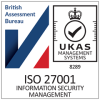Wealth Management and WealthTech is a constantly changing landscape. It can be hard to keep up.
Our handy glossary has been designed to help you get to grips with some of the words and terms you might come across – with short, straight-forward definitions.
We hope you find it useful.
Accredited Investor
What is an accredited investor?
An accredited Investor is an individual or entity in Singapore that meets specific financial criteria and is allowed to invest in certain types of securities that may not be available to the general public.
Advisor
What is an advisor in financial terms?
An advisor refers to a dedicated expert working for a financial planning firm, private bank or wealth manager, who provides professional assistance and guidance to its clients. An advisor will aim to support clients in making informed decisions, solving problems, and achieving their goals. An advisor is sometimes referred to as a financial advisor (FA), relationship manager (RM), wealth manager (WM) or private banker (PB).
AI (Artificial Intelligence)
What is AI?
Artificial intelligence is the use of computer technology to mimic the problem-solving abilities of the human mind; not to be confused with process automation. Applied into the private banking and wealth management industry, with consideration for client life-cycle management in particular, applications include: risk assessment of prospects and customers, commercial viability assessments, cross-sell and upsell recommendations and automated trend identification across complex sets of customer and process related data.
Alternative Investments
What are alternative investments?
Alternative investments are non-traditional investments, such as hedge funds, private equity, real estate, commodities, and venture capital, offering potential diversification benefits but often carrying higher risks.
AML
What is AML in wealth management?
AML in wealth management stands for anti-money laundering. AML refers to a set of laws, regulations, and procedures implemented to prevent and combat money laundering and other illicit financial activities.
The purpose of anti-money laundering measures is to detect and deter money laundering activities, terrorist financing, and other financial crimes.
For financial institutions, such as private banks and wealth management firms, compliance begins with verifying the identity of new clients – which is referred to as Know Your Customer and Customer Due Diligence which applies to both new and existing customers. As such these checks need to be undertaken throughout the customer lifecycle.
API
What is an API?
An API, or application programming interface, is a set of rules and protocols that allows different software applications to work together seamlessly, enabling them to share and utilise each other's capabilities and data.
In developing customer relationship management (CRM) or customer lifecycle management (CLM) platforms, the use of APIs is critical in orchestrating the providers within the ecosystem, so that ultimately, the new CRM or CLM enhances any overall management system rather than disrupts it. These APIs can consist of technology vendors and back-office platforms which are configured to fetch/collect data and process information along predefined workflows for both front-office and middle office teams.
Asset Allocation
What is asset allocation in financial terms?
Asset allocation is the process of distributing an investment portfolio among different asset classes (e.g. stocks, bonds, real estate, cash) to achieve a balance between risk and return based on the client's financial goals and risk tolerance.
Assets Under Advice (AUA)
What are assets under advice?
Assets under advice (AUA) is the total value of investments for which the investment adviser has provided advice, irrespective of whether the firm itself has implemented this advice or provided custody for the assets. This can include services such as financial planning and consultancy.
Assets Under Management (AUM)
What are assets under management?
Assets under management (AUM) is a financial term that refers to the total value of assets that a financial institution, such as a bank, investment firm, or wealth management company, manages on behalf of its clients. These assets can include various types of investments, such as stocks, bonds, mutual funds, real estate, and other financial instruments.


